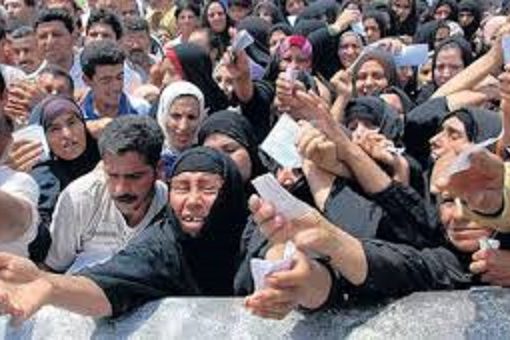End-of-Mission press releases include statements of IMF staff teams that convey preliminary findings after a visit to a country. The views expressed in this statement are those of the IMF staff and do not necessarily represent the views of the IMF’s Executive Board. Based on the preliminary findings of this mission, staff will prepare a report that, subject to management approval, will be presented to the IMF’s Executive Board for discussion and decision.
- The COVID-19 pandemic and the sharp decline in oil prices and output have aggravated Iraq’s economic vulnerabilities. Real GDP growth this year is expected to contract by 11 percent amid a sharp widening of fiscal and external imbalances.
- A comprehensive package of near-term economic policies anchored in a credible fiscal strategy is needed to overcome the health crisis, ensure economic stability, and protect the vulnerable.
- Achieving durable and inclusive growth amid formidable challenges will require wide-ranging structural reforms aimed at strengthening public finances, improving governance, reforming the electricity sector, promoting private sector development, and ensuring financial sector stability.
An International Monetary Fund (IMF) team led by Tokhir Mirzoev held a virtual mission with the Iraqi authorities from November 11 to December 10, to conduct discussions for the 2020 Article IV consultation with Iraq.
At the end of the virtual mission, Mr. Mirzoev issued the following statement:
“The fallout of the COVID-19 pandemic and the sharp decline in oil prices and output have aggravated Iraq’s economic vulnerabilities. Real GDP growth is expected at -11 percent in 2020, reflecting a contraction of oil output and an interruption of non-oil economic activity. The sharp decline in oil revenue is expected to widen the fiscal and external current account deficits to 20 and 16 percent of GDP respectively.
“A decisive recalibration of near-term economic policies will be critical to ensure macroeconomic stability and protect the vulnerable. Overcoming the health crisis is the highest priority. The next phase of the pandemic will require additional fiscal resources, including to acquire and distribute widely a viable vaccine, supported by a strong governance framework. A comprehensive policy package to reduce fiscal and external imbalances will be critical to relieve financing constraints and ensure debt sustainability, while safeguarding international reserves. In this context, fiscal efforts in the 2021 budget should target key areas of fiscal vulnerability, notably reversing the unsustainable expansion of wage and pension bills, reducing inefficient energy subsidies, and raising non-oil revenues. Protecting the vulnerable will be of paramount importance and requires boosting significantly the targeted cash transfers and expanding their coverage, as well as improving targeting of other parts of the social safety net.
“Achieving durable and inclusive medium-term growth amid formidable challenges and vulnerabilities will require sustained implementation of wide-ranging structural reforms. These reforms should aim at strengthening public finances to enable critical health and social expenditure needs, reforming the electricity sector, fighting corruption, and expanding institutional capacity. Uncertain medium-term oil market prospects and strong population growth further raise the urgency of advancing the reform agenda.
“Continued strengthening of public finances over the medium term would create much-needed fiscal space for development and social protection. A comprehensive civil service reform would strengthen the effectiveness of the public sector while reducing fiscal costs. Recalibration of the pension system is needed to ensure its sustainability. Stemming the electricity sector’s mounting financial losses and reforming the sector will enhance service provision and ensure its financial viability. Overhauling the tax and customs policy and administration will help diversify fiscal revenues. These efforts should be combined with improvements in public financial management and reforms to minimize fiscal risks stemming from government guarantees and other contingent liabilities.
“Addressing governance weaknesses and reducing corruption will be vital for Iraq’s future economic development. Simplification, digitalization, and greater transparency of key public services and institutions would reduce corruption risks, especially in public procurement. Alongside, strengthening audits, improving legal and regulatory frameworks in line with international standards and conventions, expanding capacity for risk-based supervision and enforcing compliance with AML/CFT rules will help strengthen public trust and investor sentiment.
“A decisive strategy to reform the large state-owned banks and level the playing field in the financial sector will enable private sector development and secure financial stability. In addition to strengthening control over these banks’ governance and enhanced supervision, it will be important to perform an international audit of the large state-owned banks to inform options for their restructuring.
“The team exchanged views with senior officials of the Central Bank of Iraq (CBI) and the Ministry of Finance, members of the Parliamentary Finance Committee, as well other ministries, government agencies, and representatives from the civil society.








Comment here